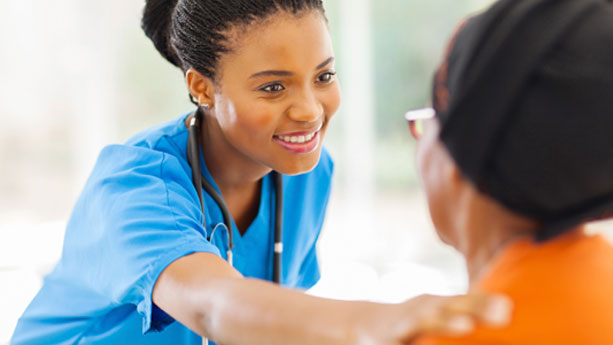Mills-Peninsula offers counseling and support in a variety of areas to help support you and your loved ones as you undergo treatment for cancer.
Emotional Support
We provide a full circle of support, including emotional counseling and referrals to support groups for you and your family. Our counselor can help you and your family:
- Arrange transportation to and from treatment
- Ease distress during treatment
- Cope with side effects
- Identify and work through depression and anxiety
- Find emotional support in group or 1-on-1 therapy
- Locate local resources for cancer information and support
Financial Counseling
Depending on your treatment, you may want to take time off work. You may need personal assistance. Our qualified financial counselors provide the information and resources you need to manage your finances so you can concentrate on your cancer treatment and recovery.
Our financial counselors provide:
- Estimates for future treatments, co-pays and deductibles based on diagnosis and chosen treatments
- Help with questions about medical bills and payment history
- Guidance on health insurance benefits and obligations
- Help completing paperwork for patient assistance programs
- Advice through the appeals process if your insurer denies coverage
- Aid to the business office in resolving claims issues
- Help finding financial assistance if you are uninsured
If you have limited resources, it’s important to know that many national and local organizations help people with cancer in different areas of their lives. Some pharmaceutical companies provide grants and assistance with the costs of medication. And there are government programs that allow uninsured or underinsured people with certain cancers to immediately enroll in state health plans.
If your illness affects your ability to work, you may need to file for State Disability Insurance, Supplemental Security Income, Medi-Cal or Medicare. Our financial counselor can help you determine where and how to apply for these programs.
Lymphedema Therapy
Lymphedema, swelling in the limbs or trunk, can develop when lymph nodes are removed or radiated during cancer treatment. We offer a combination of lymphedema therapy and self-care education, the only program of its type on the Peninsula.
Our therapists use Complete Decongestive Physiotherapy (CDP), a painless, noninvasive treatment that includes:
- Proper skin and nail care to reduce risk of infections
- Manual lymph drainage (MLD) – a gentle manual technique that routes lymph fluid away from the obstructed area toward adjacent functioning lymph nodes
- Specialized compression bandaging
- Remedial exercises or exercises that address related orthopedic dysfunctions and improve lymphatic flow
- Instruction in self-care techniques including self-manual lymph drainage and self-bandaging
- Compression garment fitting
Nurse Navigators
Advanced practice nurse navigators provide education, support and advocacy – the information you need during cancer treatment and into recovery. They act as liaisons between you, your doctors and your family. Their goal is to help improve your cancer care experience.
Our advanced practice nurse navigators:
- Serve as a continuous point of contact for you and your family throughout your entire cancer care experience
- Educate and support you in making informed decisions about your care, recovery and rehabilitation planning
- Coordinate your appointments and care among your cancer specialists
- Teach you and your family members about your treatment and side effect management
- Provide you and your family with support resources at the cancer center and in the surrounding community
Nutrition Services
The oncology dietitians at the Dorothy E. Schneider Cancer Center provide advice and strategies for patients and families who may face challenges with nutrition during cancer treatment.
Our dietitians work with you and your family to evaluate the foods you eat and help develop personalized food guidelines. We also encourage you to take an active role in your care and to make healthy eating choices. Our dietitians are part of your overall care team and consult regularly with your oncologist. They can:
- Teach you how to reduce and cope with treatment side effects that might lead to weight loss, dehydration and an overall decrease in energy
- Design personal dietary guidelines
- Offer strategies for your family or caretakers to help you get the best nutrition and quality of life
- Provide information regarding nutritional and dietary supplements
- Provide follow-up care as needed through your treatment
Oncology Rehab and Physical Therapy
Rehabilitation and physical therapy during and after cancer treatment can help reduce fatigue, lower your risk of complications, boost your immune system and speed your functional recovery. It can also help rebuild muscle strength, improve your flexibility and improve sleep. Even a small amount of exercise can help you reduce side effects, lower your anxiety, and increase your sense of control.
Your cancer care rehabilitation therapist can help you assess and improve:
- Speech problems as a result of treatment
- Weakness from treatment or muscle atrophy
- Limited flexibility and range of motion
- Fatigue and decreased endurance
- Pain management
- Impaired balance
- Decreased cardiovascular fitness
- Scar tissue after surgery
- Osteoporosis or osteopenia as a result of treatment
- Peripheral neuropathy – numbness and tingling
Pet Assisted Therapy
The Pet Assisted Therapy program at the Dorothy E. Schneider Cancer Center is provided in partnership with the Peninsula Humane Society and SPCA. Visits by specially certified pet therapy dogs and their trainers help decrease stress and relieve anxiety, favorably affect various physiological functions, and provide an overall improved sense of well being to patients and their families. For more information on this program, please call (650) 656-4509.
Symptom Management Program
During the journey through cancer treatment, people may have difficult side effects from treatment or painful symptoms from cancer. Our advanced practice nurse navigators work closely with your doctors to arrange medications that help prevent anemia, nausea and pain.
There are many ways to manage pain, and we work with you to help control pain early. We encourage a complementary approach to pain management, including effective and safe medications, guided imagery, healing touch, massage and acupuncture.















